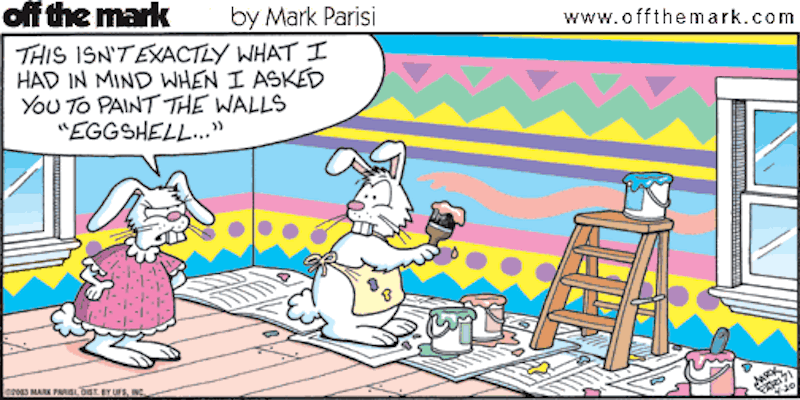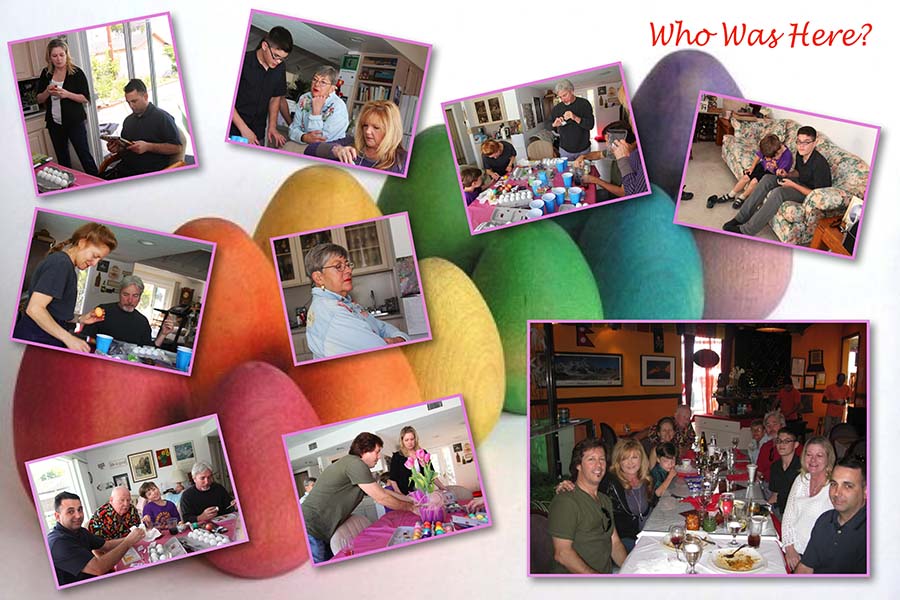Time To Celebrate By Having Lunch At 12:30 And Coloring Easter Eggs! (Page Two)
Lunch Time At The Himalayan Grill!

Nick, Lisa, and Pete enjoying a great lunch

Someone liked their food

The food is simply wonderful and plenty of it!
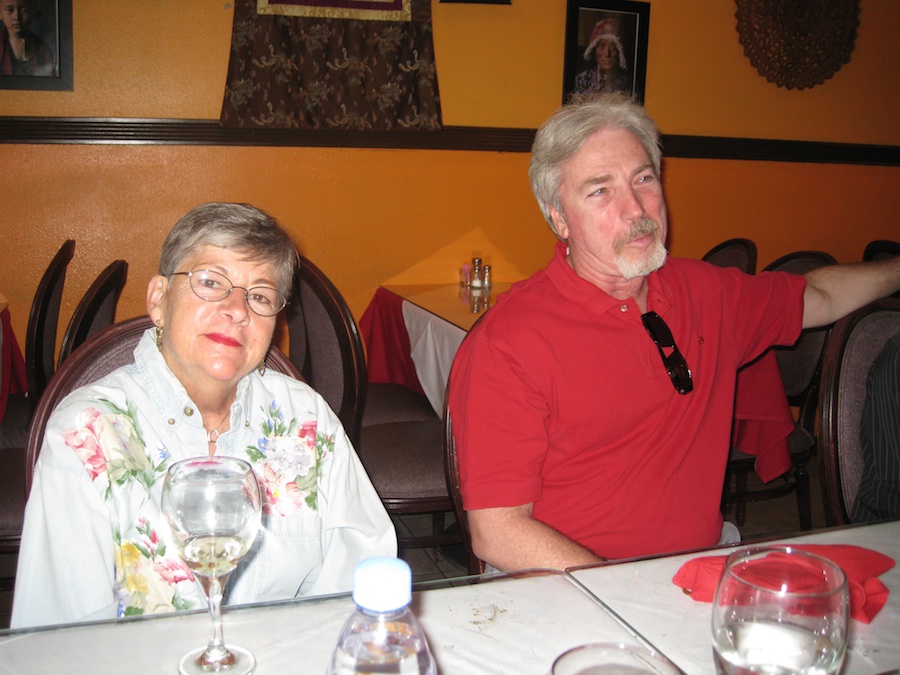
Sue and Franklyn sitting back and savoring their drinks

Meet "Mr. Ham"

Just us...

We would have looked this way in 1860....
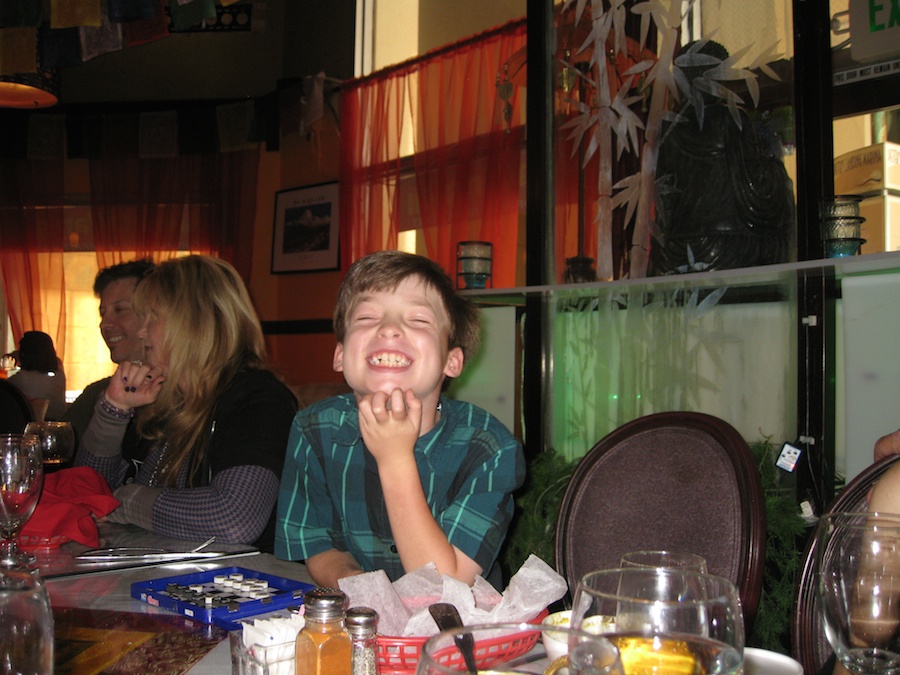
Meet "Mr. Ham #2"
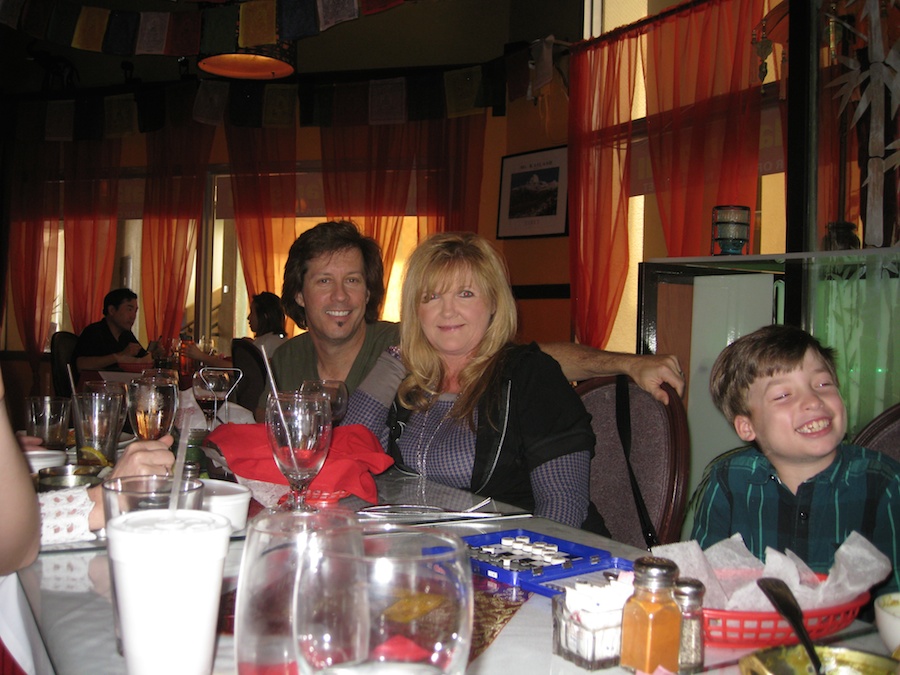
We are now energized for the next step in todays activities

Catching up on the latest gossip
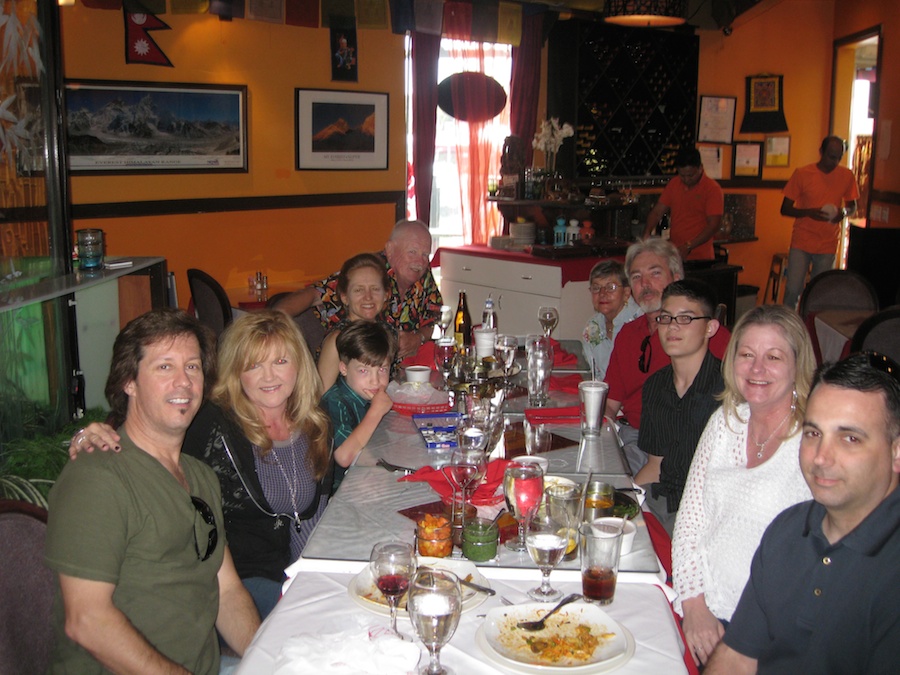
We call these people "The Egg Team"
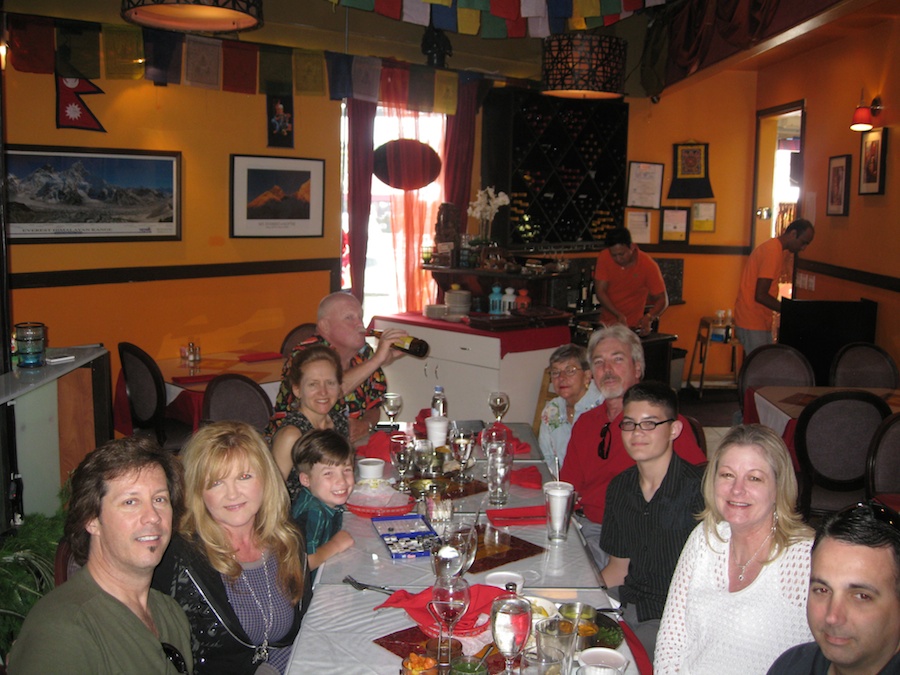
Paul caught finishing off the bottle....
Time For Coloring Of The Eggs

Did You Know? - Egg decorating is the art or craft of decorating eggs. It is quite a popular art/craft form because of the attractive, smooth, oval shape of the egg. Any bird egg can be facilitated in this process, but most often the larger and stronger the eggshell is, the more favoured it will be by decorators.
Goose, duck and hens' eggs are usually "blown" - a hole is made in either end and the contents are blown out. The egg is then either carved, dyed, painted, appliqued or otherwise decorated (using a number of different techniques). Egg decoration is particularly popular in Eastern European countries.
Some eggs, like emu or ostrich eggs, are so large and strong that the shells may be carved without breaking. Decorations on emu eggs take advantage of the contrast in colours between the dark green mottled outside of the shell and the shell-underlay. The oldest eggshells, decorated with engraved hatched patterns, are dated for 60 000 years ago and were found at Diepkloof Rock Shelter in South Africa.

The serious decorating begins now
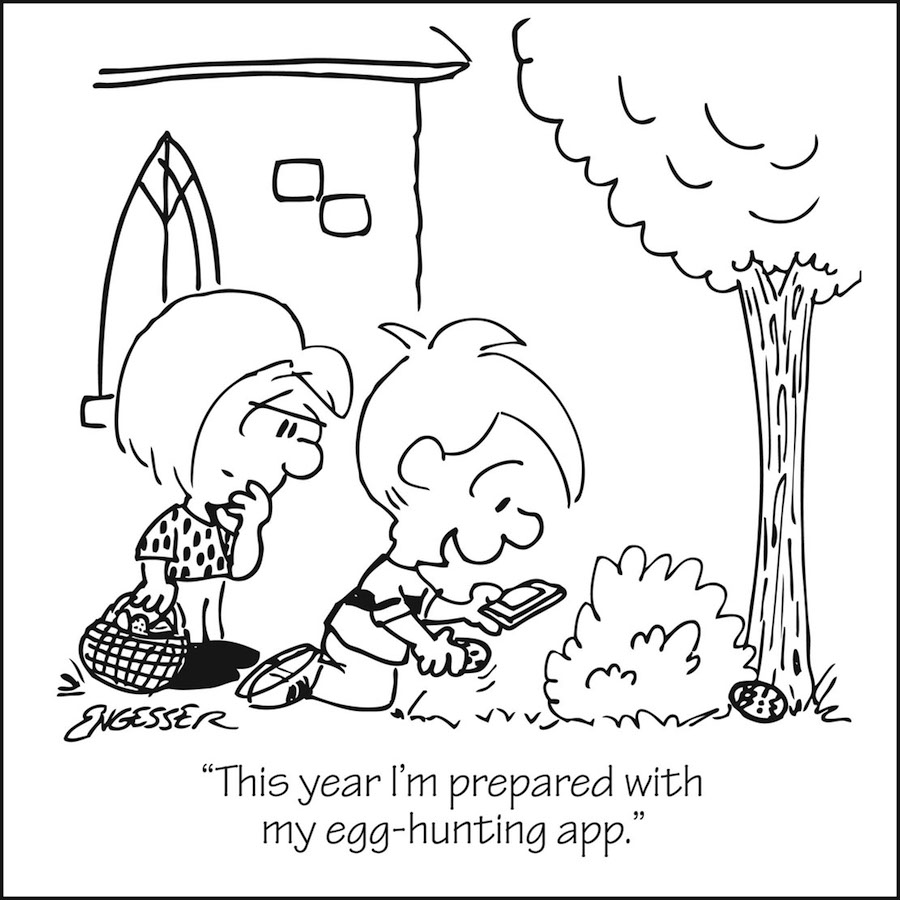
The boys disappeared so we knew they were up to something

"Hey... I know where the eggs are!"
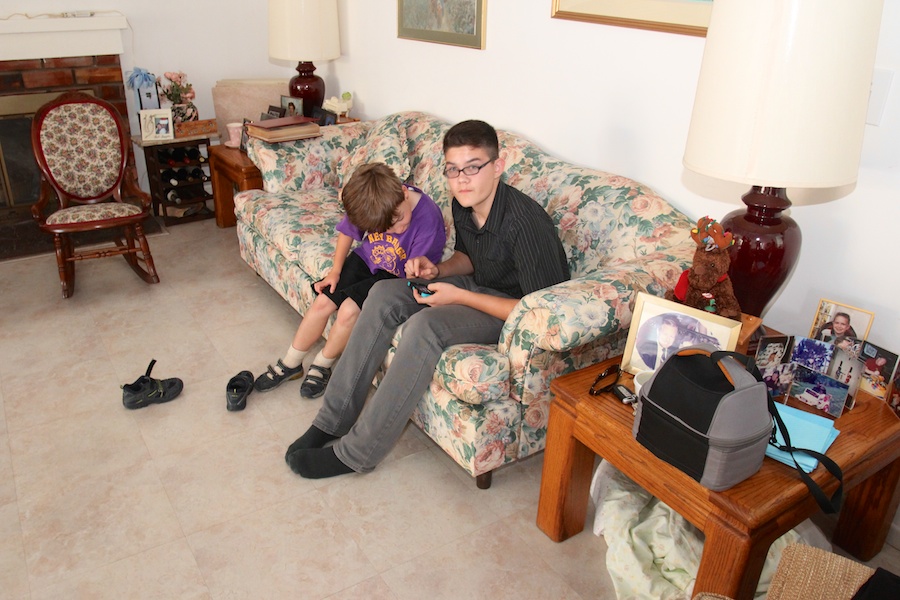
"Theo thinks I have an egg finding application on the iPhone"
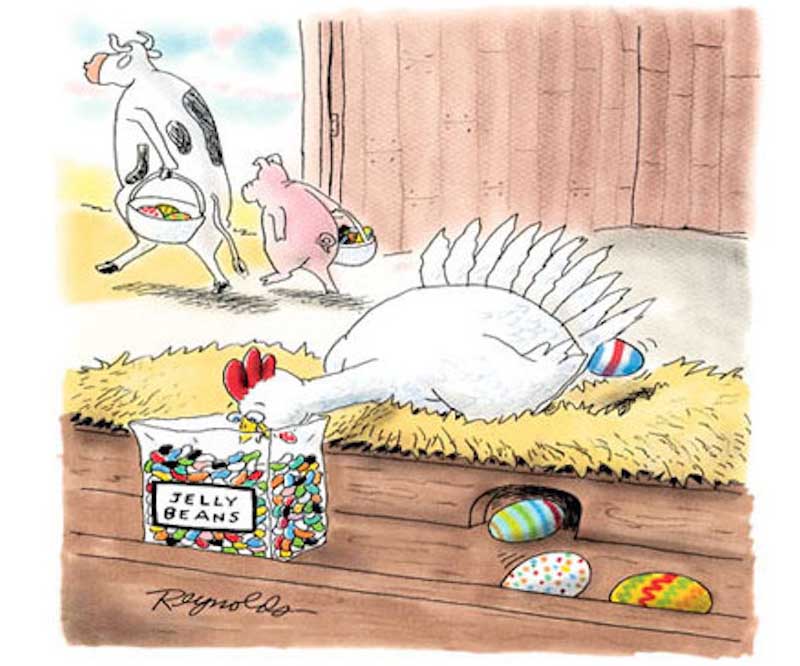
We found out how they make colored Easter eggs!

Unheard of.... Someone reading the directions????


See what happens when you follow instructions??
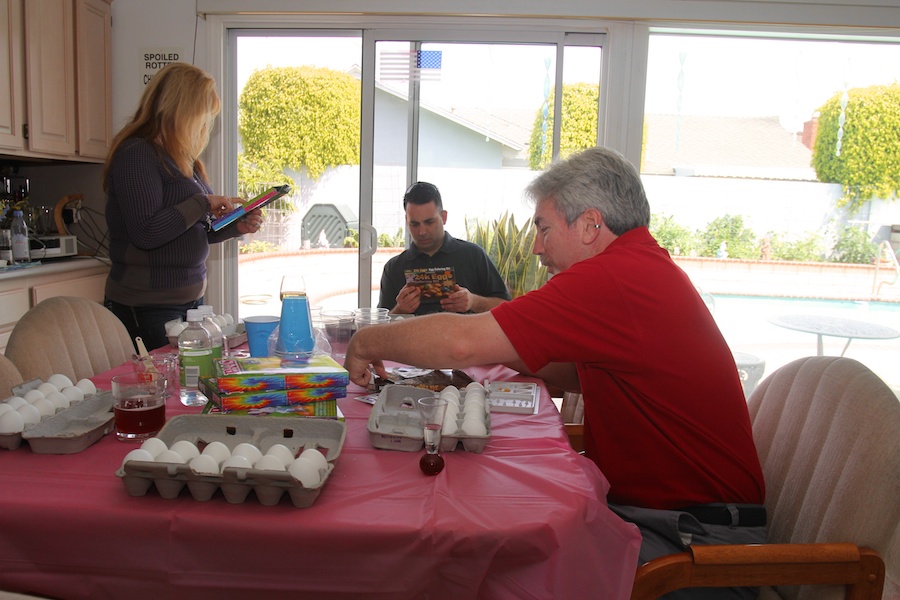
Franklyn is getting everything set up

Arm stretching
exercises
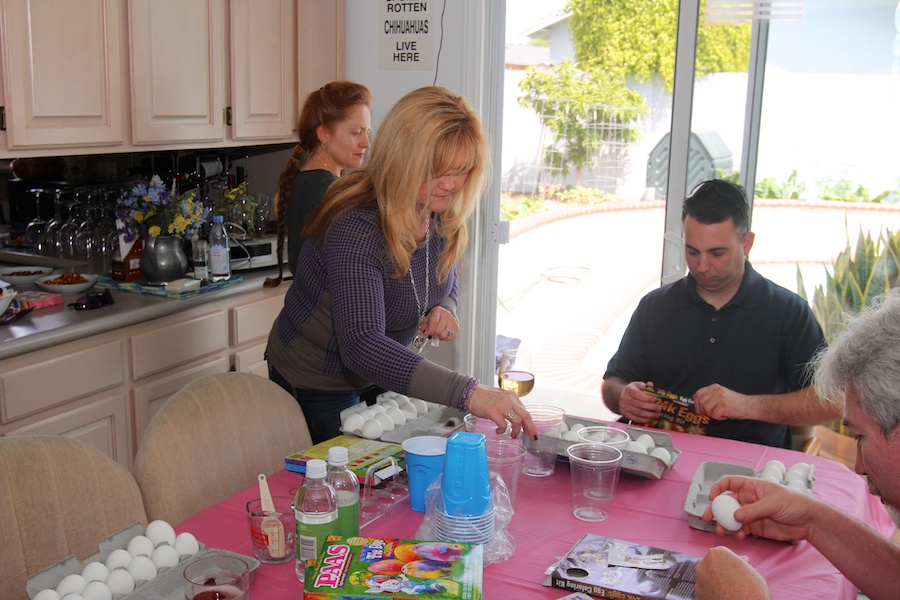
Looks like the kids are really enjoying it.... Where are the grand kids???
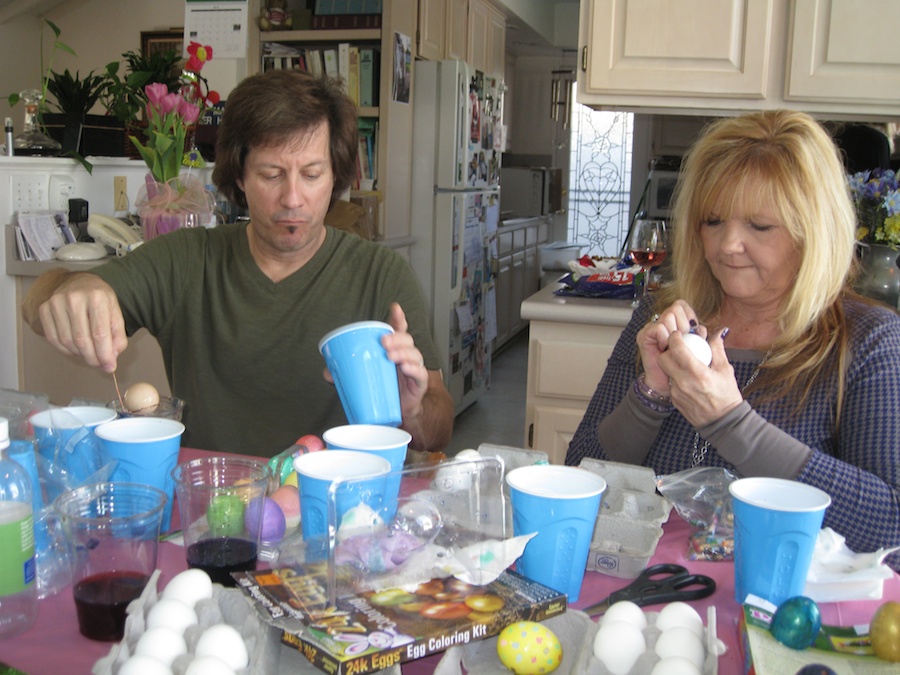
The Duda's are going great guns
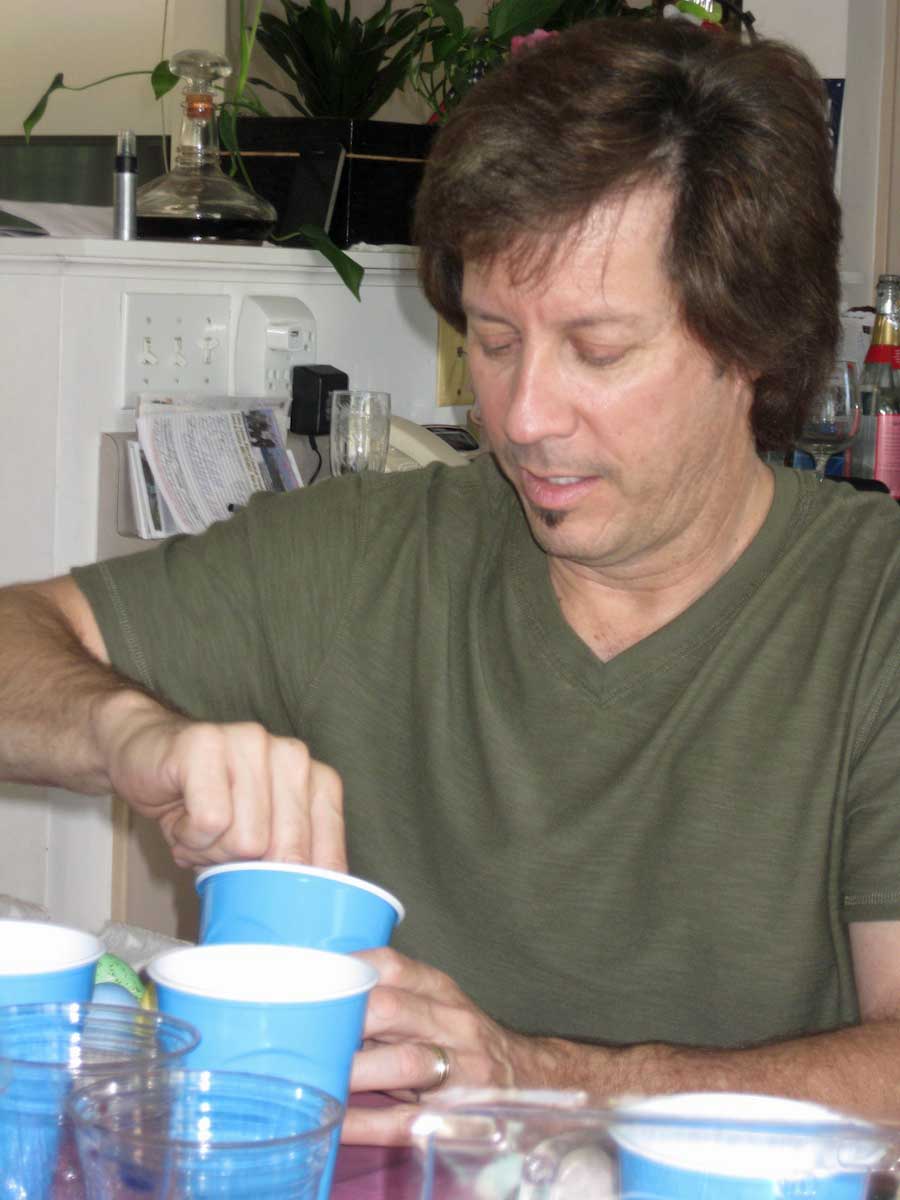
Bob has it down to a science now!

Lisa has a plan.... Do we dare ask??

Paul found the crayolas.... Makes are interesting eggs!

Michele also collects evidence

Lisa is still trying to figure out which one to do...

Dipping is an essential skill needed by all....

PAAS glitter kit

Would not have sold with Black & White advertisements
Did You Know? - The original PAAS Easter egg dye was invented by an American named William Townley.
Mr. Townley owned a drug store in Newark, New Jersey, where he concocted recipes for home products. In the late 1800s, he came up with a recipe for Easter egg dye tablets that tinted eggs five cheerful colors.
Neighborhood families started buying Townley's Easter Egg Dye packets in 1880 for only five cents and mixed them with water and white vinegar to create the perfect egg dye!
Soon, Mr. Townley realized that he had a wonderful product that other families would like to use to brighten their Easter tradition. He renamed his business the PAAS Dye Company. The name PAAS comes from "Passen," the word that his Pennsylvania Dutch neighbors used for Easter.
Today, Americans purchase more than 10 million PAAS Easter Egg Color Kits during the Easter season, and use them to decorate as many as 180 million eggs!
Now—more than 130 years later—we believe Mr. Townley would be proud of PAAS' perfect colors. The original is still the best!

Snacks from Australia

Pete is getting serious now!
Tips From Paas -
Hard-cooked, not hard-boiled. Although the cooking water must come to a full boil in this method, the pan is immediately removed from the heat so that the eggs cook gently in the hot water. This produces tender, not rubbery, eggs and minimizes cracking.
Banish the greenish ring. This harmless but unsightly discoloration that sometimes forms around hard-cooked yolks results from a reaction between sulfur in the egg white and iron in the yolk. It occurs when eggs have been cooked for too long or at too high a temperature. Our method – cooking eggs in hot, not boiling, water, then cooling immediately – minimizes this.
Very fresh eggs can be difficult to peel. To ensure easily peeled eggs, buy and refrigerate them a week to 10 days in advance of cooking. This brief "breather" allows the eggs time to take in air, which helps separate the membranes from the shell.
Hard-cooked eggs are easiest to peel right after cooling. Cooling causes the egg to contract slightly in the shell.
To peel a hard-cooked egg: Gently tap egg on countertop until shell is finely crackled all over. Roll egg between hands to loosen shell. Starting peeling at large end, holding egg under cold running water to help ease the shell off.
Storage time: In the shell, hard-cooked eggs can be refrigerated safely up to one week. Refrigerate in their original carton to prevent odor absorption. Once peeled, eggs should be eaten that day.
Food safety precaution: Piercing shells before cooking is not recommended. If not sterile, the piercer or needle can introduce bacteria into the egg. Also, piercing creates hairline cracks in the shell, through which bacteria can enter after cooking.
Never microwave eggs in shells. Steam builds up too quickly inside and eggs are likely to explode.
High altitude cooking: It's almost impossible to hard-cook eggs above 10,000 feet.

Everyone is involved now.... The teasing is running at 98%

Franklyn gives Theo a hand

The egg dye in the wine glass looks interesting

The proper way to open a container of sparkles

Lisa is getting serious now....

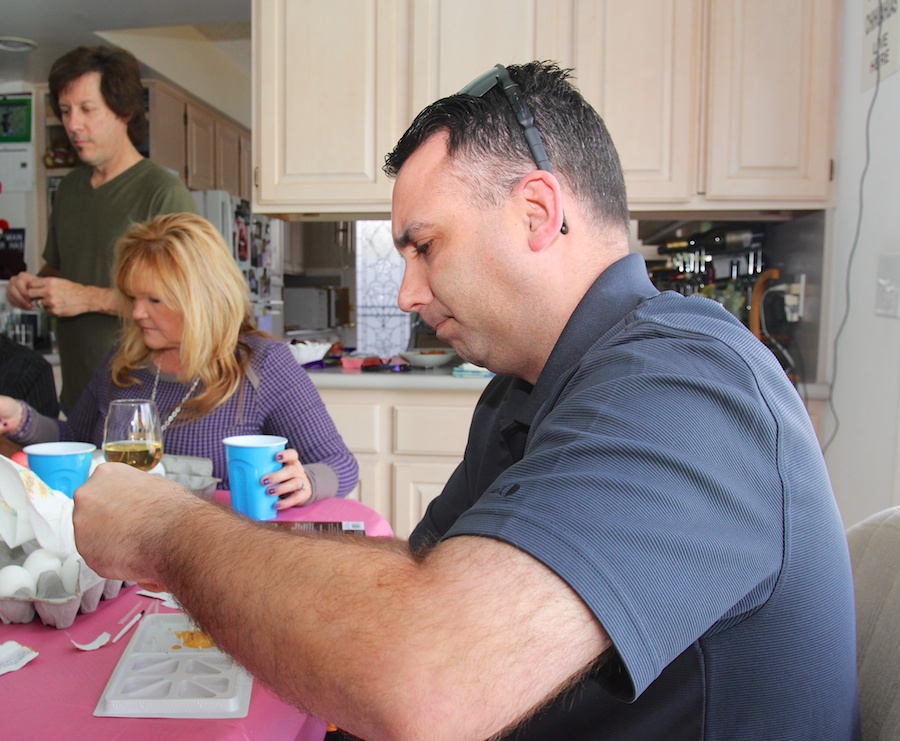
The Marines have landed...
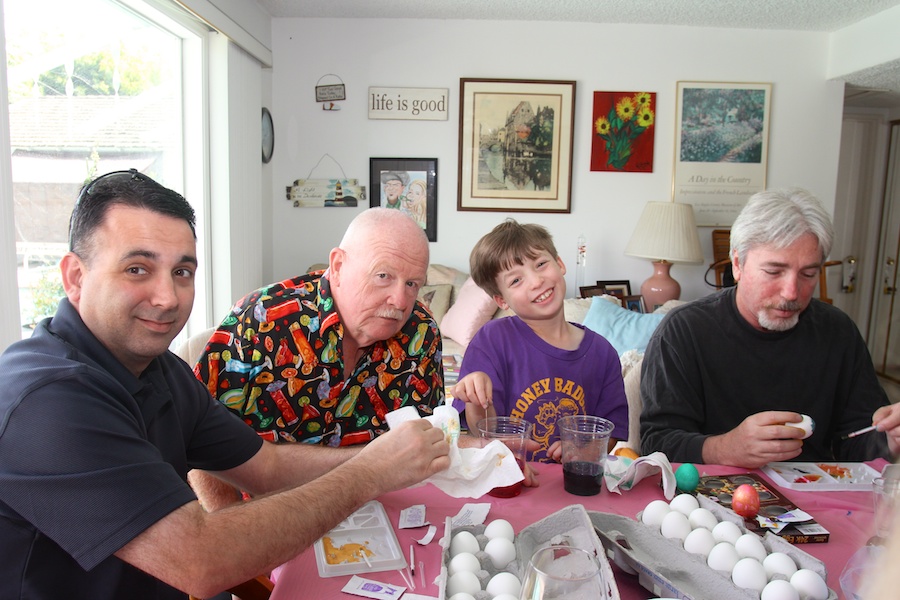
Everybody meant everybody

Oldies at work...
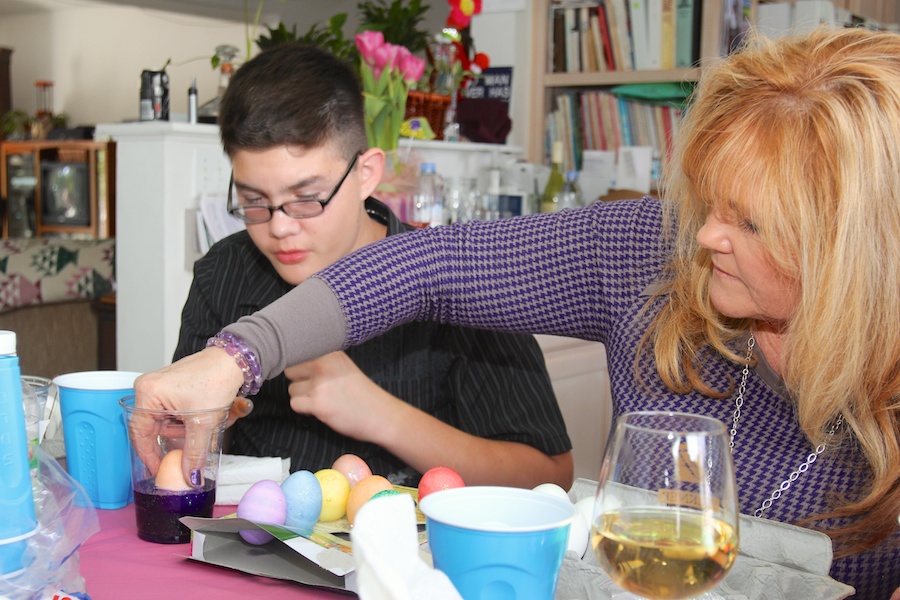
A two-toned eggs is being created

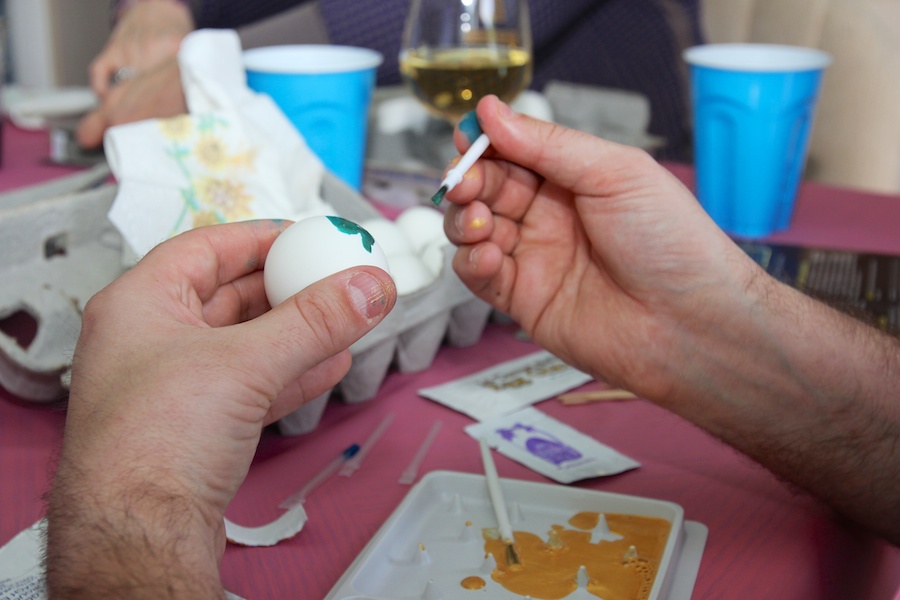
Who is this artist at work????

Sue is always amazed at the creativity the egg coloring brings out
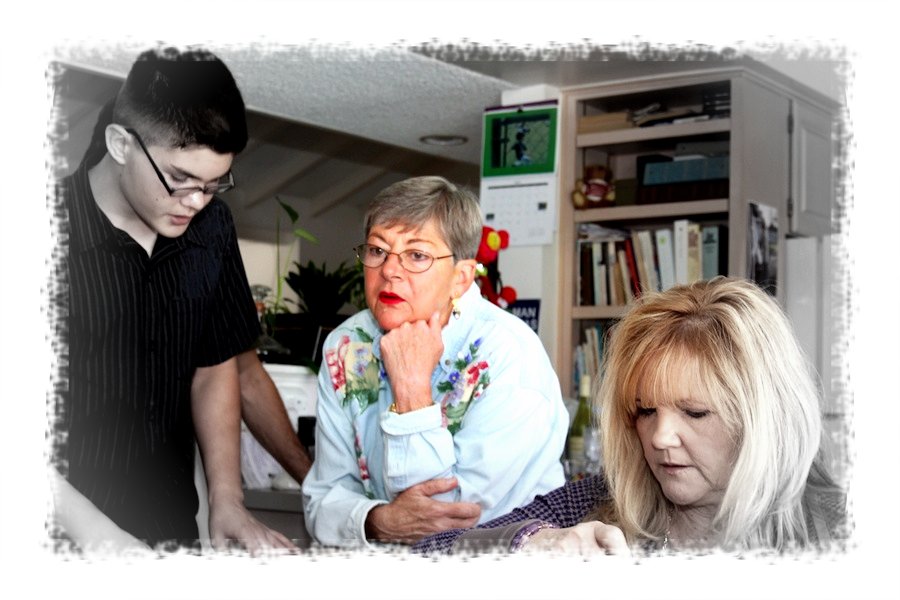
"Wow! What artists!"

Bob slugs down champagne before returning to his artists seat


Serious trouble... Robin is reading the instructions
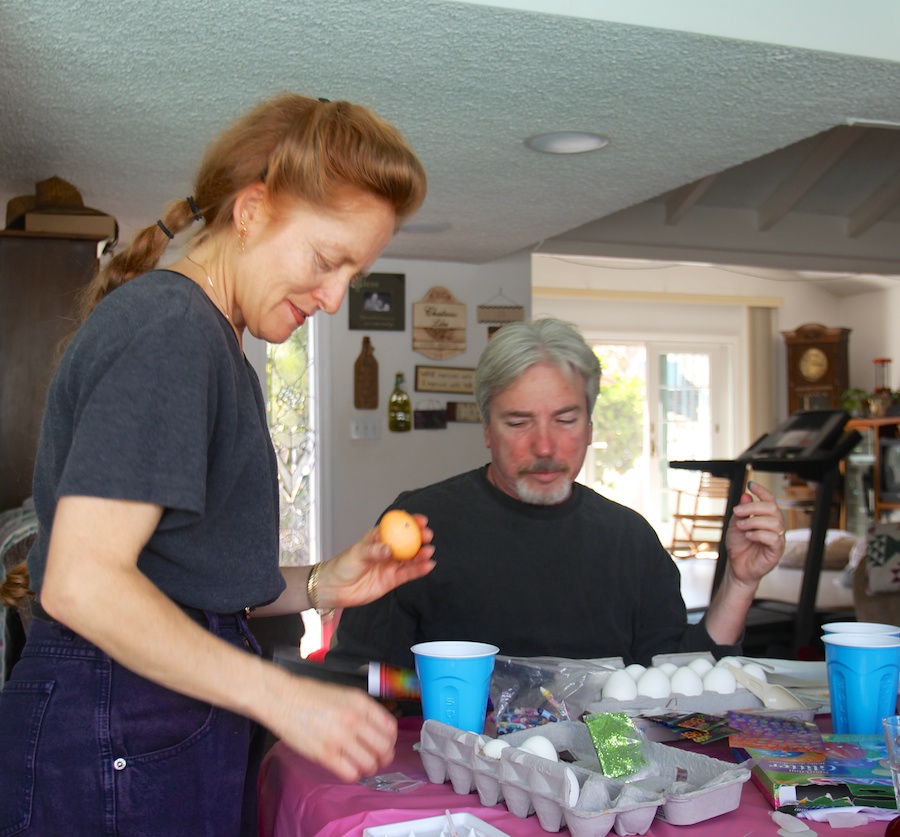
We bring in the "big guns" now

Two dozen to go


"Hey Mom.... You are pretty good at that! I have trained you well!"

Paul has something in mind....
Probably to eat it!

Paul took the easy way out

Glitter egg...
Did You Know? - The first production of modern plastic glitter is credited to American cattle farmer and machinist, Henry Ruschmann, based on a patent filled shortly after the end of the Second World War for a mechanism for cross-cutting films as well as other related inventions.
With German glass glitter unavailable due to the war, Ruschmann found a market for scrap material ground into glitter made of plastics.
He founded Meadowbrook Inventions, Inc. in Bernardsville, New Jersey, and the company is still a producer of industrial glitter today.
Today over 20,000 varieties of glitter are manufactured in a vast number of different colors, sizes, and materials.
Over 10,000,000 pounds (4,500,000 kg) of glitter was purchased between the years of 1989 and 2009 alone. Commercial glitter ranges in size from 0.002 square inches (1.3 mm2) to 0.25 square inches (160 mm2).
First, flat multi-layered sheets are produced combining plastic, coloring, and reflective material such as aluminum, titanium dioxide, iron oxide, and bismuth oxychloride. These sheets are then cut into tiny particles of many shapes including squares, rectangles, and hexagons.

The egg cartons are beginning to fill up with artwork

Every color under the sun

Bright colors almost jump out at you


Paul's attempt at art got a bit smudged... Patience is required!

The three orange eggs are a result of Paul and a crayola
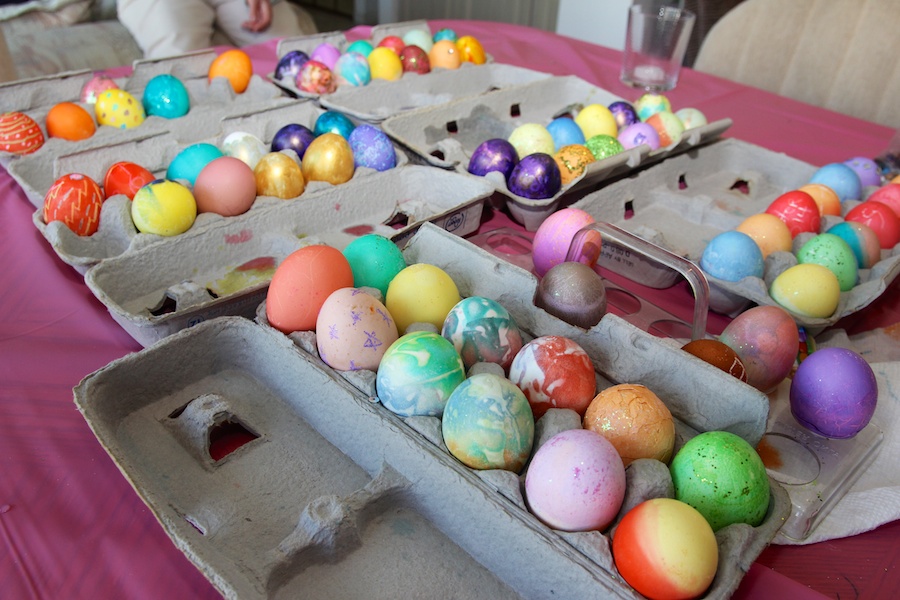
Six dozen eggs have become beautiful

The glitter eggs drew everyone's attention
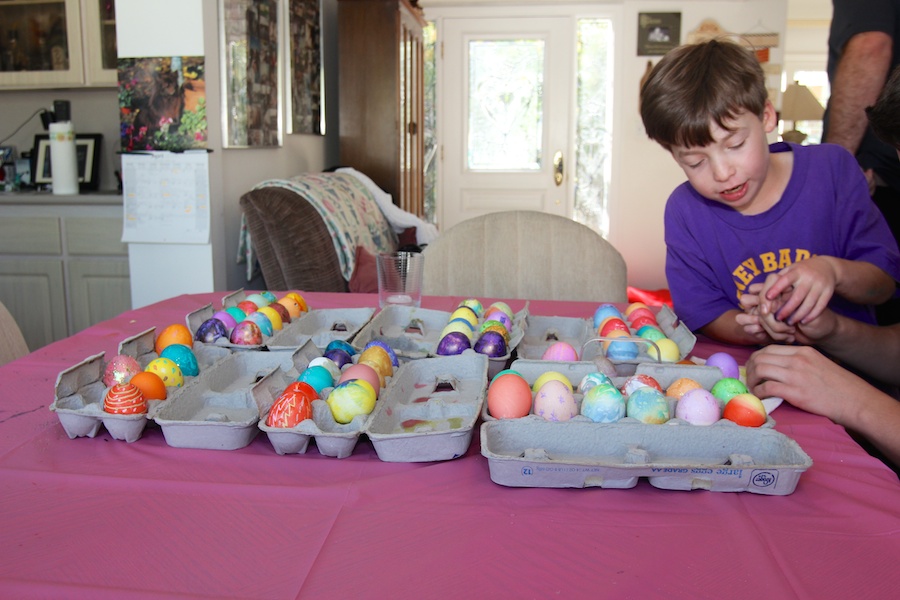
Theo is making his judgements

Arrange the artwork for pictures....
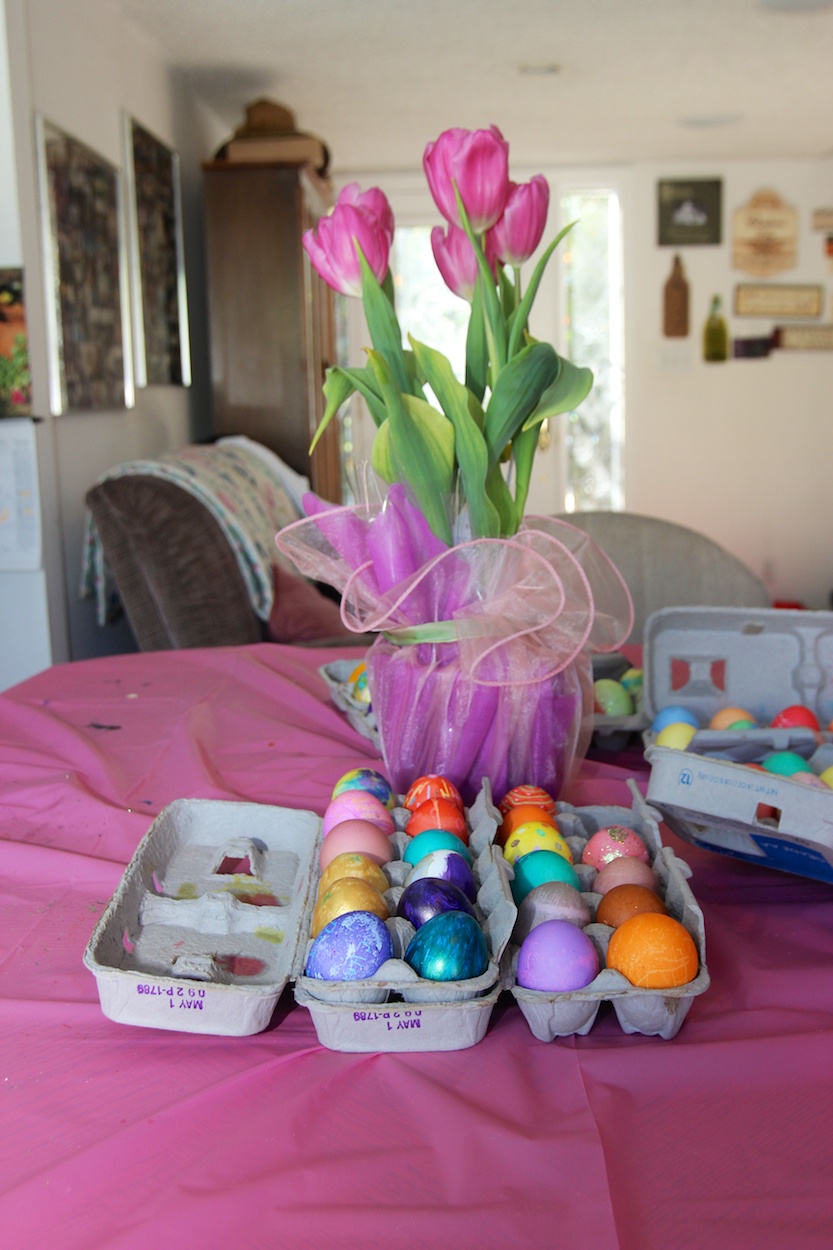
Beautiful flowers from Robin
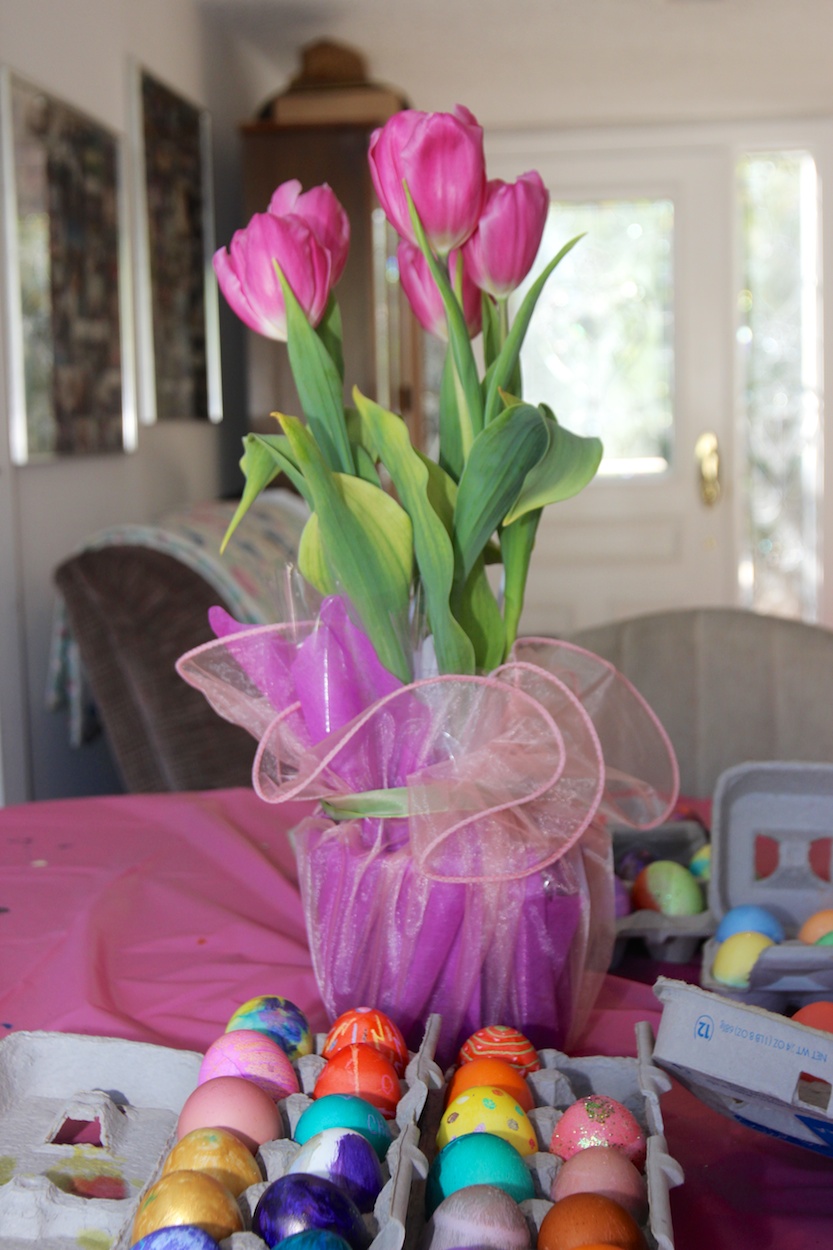
Mother Nature is amazing

Pretty good effort his year
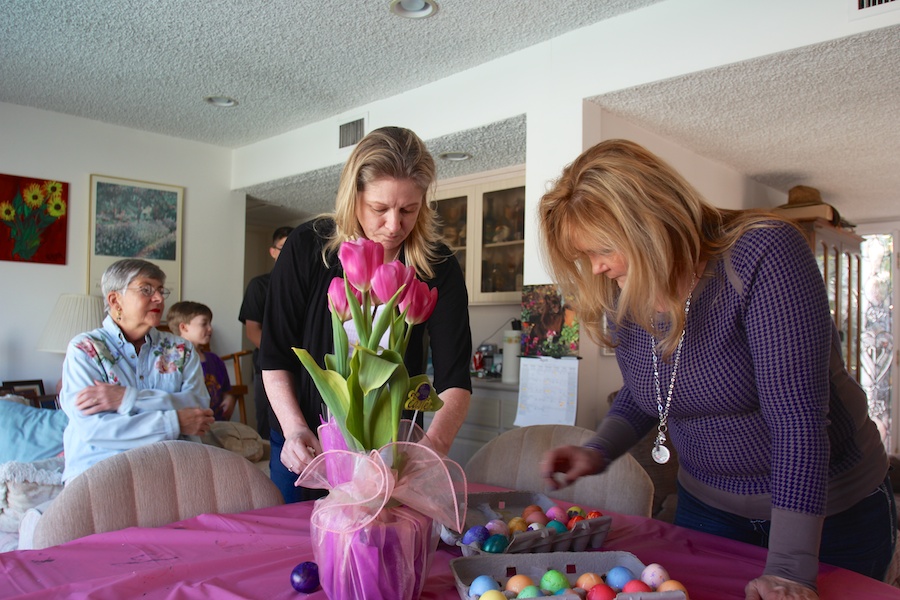
Deciding which ones to take home

See you later....
